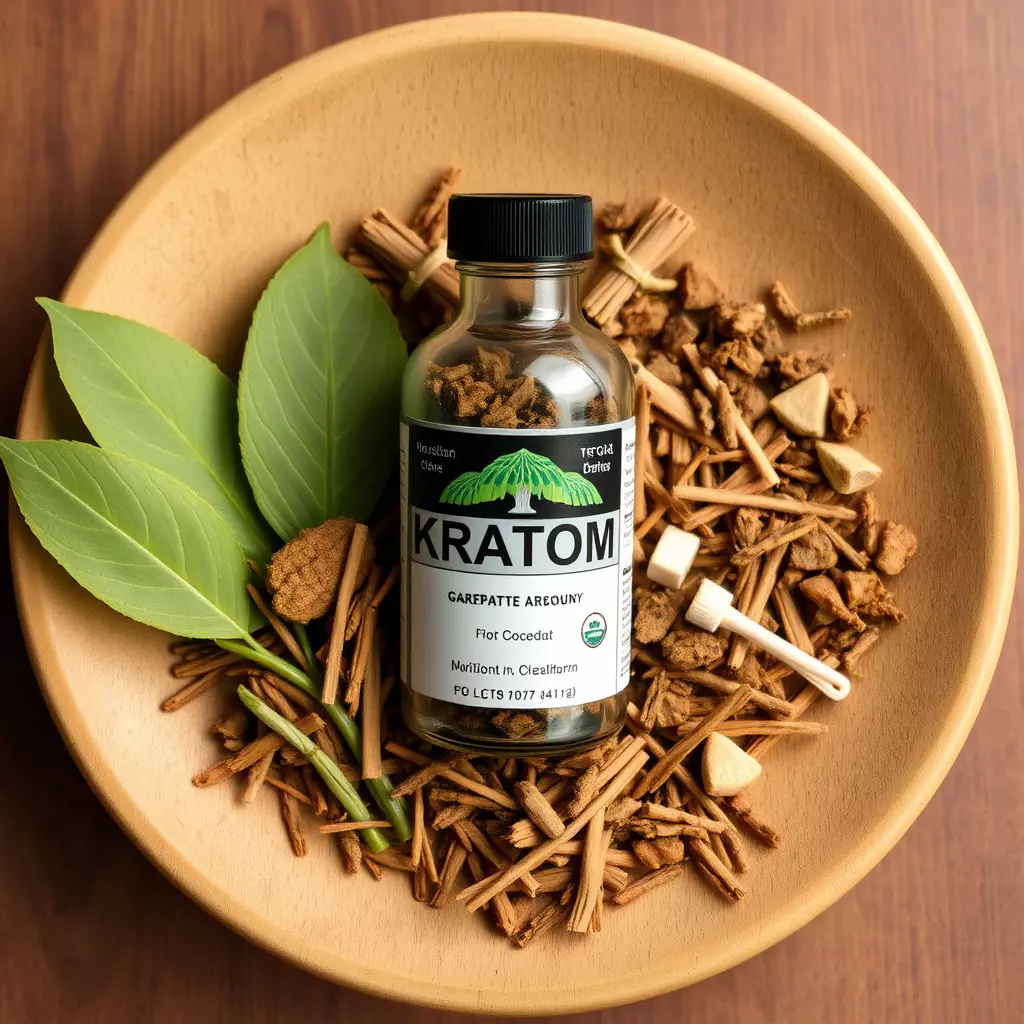Chronic Fatigue Syndrome (CFS) is characterized by profound and unexplainable fatigue that impacts daily life. Patients with CFS often face post-exertional exhaustion, sleep disturbances, cognitive issues, and various pain disorders. Managing CFS can be complex, affecting one's personal, social, and professional activities. In this context, kratom, a herbal supplement derived from the Mitragyna speciosa tree, has been explored as a potential aid due to its reported effects on pain and mood, which might indirectly help with energy levels. The legal status of kratom is particularly nuanced in Texas; although not explicitly prohibited at the federal level, its use is subject to local regulations, including state-level restrictions. In Texas, kratom is listed under Penalty Group 1, which imposes certain limitations without outright banning it. Prospective users in Texas should consult with medical and legal professionals before using kratom, considering both the potential benefits for CFS symptoms and the current legal standing. It's crucial to stay informed about the evolving legal landscape of kratom use in Texas, as this can influence its availability and legality at a local level. Users must weigh the possible relief from CFS symptoms against the need to adhere to these laws, ensuring they make informed decisions based on their personal health and the specific legal requirements of their jurisdiction.
Chronic fatigue syndrome (CFS) presents a complex challenge for individuals, disrupting daily routines and diminishing quality of life. As the medical community continues to seek effective treatments, alternative approaches like kratom emerge as potential management tools. In Texas, where the legal status of kratom is under constant review, understanding its role in CFS management becomes crucial. This article delves into the intersection of CFS and kratom use, examining its legality within the state’s framework and providing guidance on strains that may alleviate symptoms. By navigating these topics, readers can make informed decisions about incorporating kratom into their CFS management strategies.
- Understanding Chronic Fatigue Syndrome and Its Impact on Daily Life
- Exploring the Legal Status of Kratom in Texas and Its Role in CFS Management
- Effective Kratom Strains for Managing Symptoms of Chronic Fatigue Syndrome: A User's Guide
Understanding Chronic Fatigue Syndrome and Its Impact on Daily Life

Chronic Fatigue Syndrome (CFS) is a complex and often misunderstood condition characterized by severe, persistent fatigue that is not relieved by rest and affects all aspects of an individual’s life. The impact of CFS on daily functioning can be profound, with patients experiencing debilitating exhaustion after exertion, which may involve physical or mental activity. This pervasive fatigue is typically accompanied by a range of other symptoms such as sleep disturbances, memory and concentration impairments, and a variety of pain conditions. The syndrome’s multifaceted nature makes it challenging to manage and can lead to significant limitations in personal, social, and occupational activities.
In the context of managing CFS, natural and herbal remedies such as kratom have garnered attention due to their potential effects on pain relief and mood enhancement, which can indirectly influence energy levels. Kratom, derived from the leaves of the Mitragyna speciosa tree, has been used traditionally in Southeast Asia for its stimulant and sedative properties. In Texas, as with many other states, the legal status of kratom is subject to change; it’s currently unregulated at the federal level but subject to local regulations. Patients considering kratom as a management tool for CFS should first consult healthcare professionals, given the complexities of both the condition and the substance itself. It’s crucial to approach any treatment, including kratom, with careful consideration of its potential benefits and risks, especially since CFS’s effects on daily life can be deeply personal and varied. Understanding local laws regarding kratom use is also important for those in Texas or considering its use as part of a comprehensive management strategy for CFS.
Exploring the Legal Status of Kratom in Texas and Its Role in CFS Management

Kratom, a plant originating from Southeast Asia, has garnered attention for its potential effects on energy and well-being, which may offer relief to individuals suffering from Chronic Fatigue Syndrome (CFS). As of the current understanding of its legal status in Texas, kratom remains a subject of ongoing legislative review. In Texas, the legal standing of kratom is nuanced; it is neither explicitly classified as a controlled substance nor endorsed for medicinal use. The Texas Health and Safety Code classifies kratom as a penalty group 1 substance, which carries certain legal implications. However, this classification has not resulted in widespread prohibition, leaving the situation somewhat ambiguous. It is advisable for individuals interested in using kratom for CFS management to consult with legal counsel or health professionals to understand the implications under current Texas law.
For those exploring alternatives to manage CFS symptoms, kratom’s alkaloids, mitragynine and 7-hydroxymitragynine, are believed to interact with opioid receptors in the brain, potentially offering an energy boost and alleviating pain without the high potency of traditional opioids. Users reportedly experience a reduction in fatigue and an improvement in mood and cognition, which can be beneficial for CFS management. However, due to the evolving legal landscape and varying interpretations of Texas law regarding kratom, it is crucial for patients to approach its use with caution and informed consent. The role of kratom in CFS management is an area of personal exploration for some individuals, and any such exploration should be undertaken with a comprehensive understanding of the legalities and potential health implications.
Effective Kratom Strains for Managing Symptoms of Chronic Fatigue Syndrome: A User's Guide

When exploring natural supplements for managing chronic fatigue syndrome (CFS), kratom has emerged as a potential option due to its complex alkaloid profile that may influence energy levels and pain perception. Users looking to incorporate kratom into their CFS management plan should consider the legality of kratom in their area, such as Texas, where its status can vary by locality. As of the knowledge cutoff in 2023, is kratom legal in Texas? The answer is not straightforward, as state laws may differ from federal ones; typically, kratom is not explicitly illegal at the federal level but has been made illegal in some counties within Texas. Users must verify the current legal status with local authorities before use.
Selecting the right kratom strains can be crucial for managing CFS symptoms effectively. Mitragyna speciosa, commonly known as kratom, contains over 40 alkaloids, each potentially offering unique benefits. Strains such as Maeng Da, Bali, and Borneo are popular among users seeking energy enhancement and pain relief, which are common challenges associated with CFS. For instance, Maeng Da kratom is renowned for its stimulating effects that may help combat fatigue, while Bali and Borneo strains are often favored for their sedating properties that can aid in sleep regulation, a significant aspect of managing chronic fatigue. It’s important to experiment with different strains and dosages under the guidance of a healthcare professional to find the most effective combination for your individual needs, always adhering to local legal restrictions on kratom use. Users should also be aware that the effects of kratom can vary greatly from person to person, making personalized experimentation and medical supervision particularly important in managing CFS symptoms with kratom.
In conclusion, chronic fatigue syndrome presents a complex challenge for individuals, impacting their daily functioning and overall quality of life. While there remains much to understand about this condition, current research and anecdotal evidence suggest that kratom may offer relief for some suffering from CFS. It is crucial for those considering kratom as part of their management strategy to be aware of its legal status in Texas. As outlined in the article, while kratom is a viable option for some, its use is regulated and subject to change; therefore, it is imperative to stay informed on state legislation regarding its legality. For those in Texas seeking natural alternatives to manage CFS symptoms, understanding the effective strains of kratom can be instrumental in finding relief. It is important to approach kratom with caution, as individual responses to this substance can vary greatly. Consultation with healthcare professionals is essential to ensure safe and effective use. With careful consideration and appropriate guidance, kratom may serve as a helpful adjunct in the management of chronic fatigue syndrome, offering hope for those impacted by this debilitating condition.






